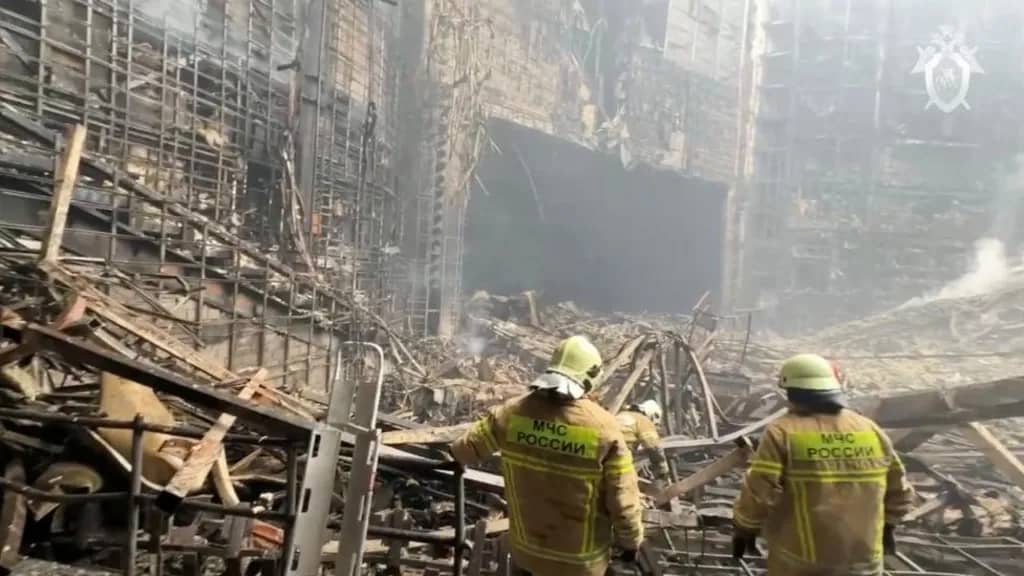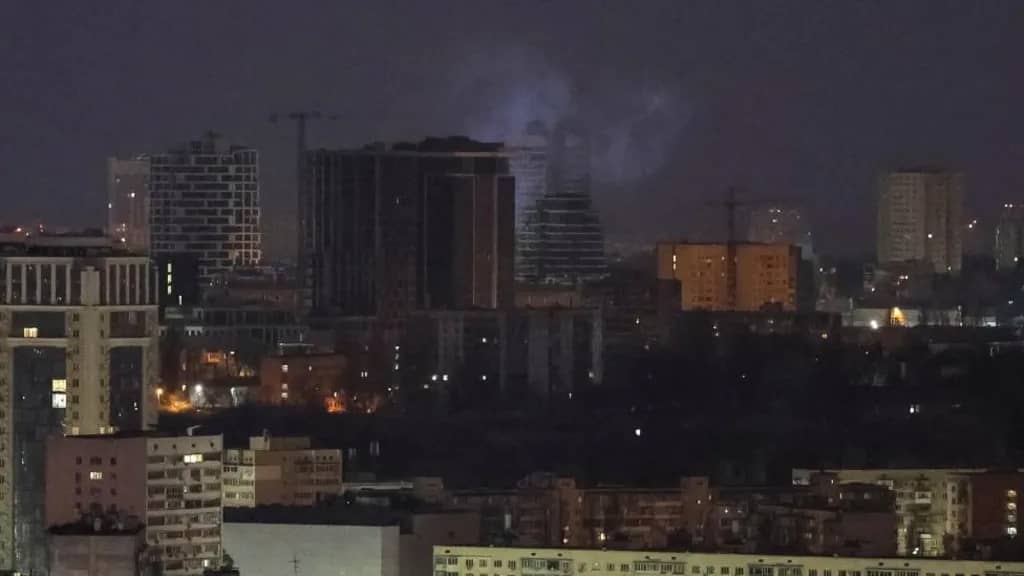Zelensky’s Response to Allegations: Ukraine’s Stance Amid Concert Hall Attack Fallout
Zelensky retaliates following Russia’s attempt to link Ukraine to concert hall attack.
As news of the assault on a Moscow concert hall surfaced, Ukrainians braced themselves for the inevitable: accusations against Kyiv. They anticipated a surge in drone attacks and missile strikes.
The blame game commenced almost instantly. Initially subtle, the accusations gained traction when President Vladimir Putin directly implicated Ukraine, alleging that the perpetrators sought refuge there.
Shortly before dawn on Sunday, explosions rocked Kyiv. Putin’s remarks on Saturday, during his address to the Russian nation, came amidst claims by the Islamic State (IS) group that they were behind the attack. The U.S. had previously warned of a threat, corroborating IS’s involvement.
Subsequently, IS released a gruesome video of the massacre, filmed on bodycams, featuring chants of “God is Greatest” from the assailants.
Zelensky Condemns Moscow’s Blame Game: Unmasking Russian Aggression in the Face of Concert Hall Attack

Kyiv Intelligence Debunks Moscow’s Claims: Uncertainty Surrounding Alleged Attackers’ Route and Treatment

Zelensky Suggests Russian Involvement in Moscow Attack: Heightening Tensions Amidst Information Warfare
Escalating Tensions: Missiles Strike Ukraine Amidst Ongoing Hostilities
Sunday morning’s missile strikes targeting Ukraine appear consistent with ongoing hostilities rather than a direct response to the Crocus City Hall attack. Reports also emerged of Ukrainian strikes on Crimea, annexed by Russia in 2014. The extensive damage inflicted suggests meticulous planning, with this being Russia’s second large-scale strike since Friday. Kharkiv remains crippled by power outages following Friday’s assault on energy infrastructure. Ukraine braces for further escalation following Moscow’s rhetoric, although the Crocus City Hall attack underscores a genuine threat within Russia’s borders, distinct from the fabricated pretext for Putin’s 2022 invasion. This poses a significant concern for the Russian president, known for his aversion to appearing weak. Hence, Russia seeks to deflect blame towards Kyiv despite evidence pointing elsewhere.
